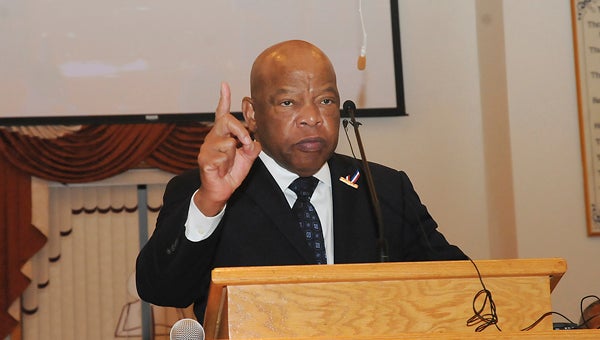Williams takes part in Sen. Jones’ education roundtable
Published 9:52 am Tuesday, August 27, 2019
Selma City Schools Superintendent Dr. Avis Williams was one of seven participants in Sen. Doug Jones’ (D-AL) educational roundtable panel at The University of Montevallo on Saturday.
The topic of discussion was something that many panelists agreed was something that affects everyone in the state: teacher shortages.
In his opening remarks, Jones said teachers are “really the backbones of society” adding there are 1,700 uncertified teachers in Alabama’s classrooms.
Williams added these weren’t the only areas with shortages saying “attracting and retaining” elementary teachers is difficult.
Williams also said many people aren’t going into the teaching profession anymore and there is a “thinner pool from which to choose” candidates.
Dr. Courtney Bentley, The University of Montevallo’s dean of education, expressed her concern of having a large number of uncertified teachers in classrooms adding that how long a teacher is allowed to teach under an emergency certificate is also troubling.
The emergency certificate was extended by lawmakers from one to two years and can be renewed once, according to Bentley.
“We can have someone in the classroom with no preparation or support, or not seeking any development, for up to four years,” she said adding it “de-professionalizes” teaching to put untrained teachers in a classroom.
Ruth Busby, the dean of education at Troy University said a full state certification means a teacher has been vetted and has proven they can teach. Busby added other ways to becoming a teacher such as Teach for America are not as rigorous of a training.
Williams, however, said the Selma City School system relies heavily on programs like Teach for America.
“I have a slightly different perspective,” said Williams. “I don’t consider teachers who are coming in through a non-traditional track as de-professionalizing. In fact, if it were not for those teachers including Teach for America, we wouldn’t have teachers at all. I wonder if the hoops and the rigor is part of the reason that we have fewer teachers entering the field of education to begin with. What I know for sure is that we are looking for people who want to teach and oftentimes, people come to us with a variety of experience including education that may not have been the traditional route. When I first came to Selma, we had one certified teacher in all of seventh-grade. I have colleagues that do not have one certified math teacher in all of their school district. So, we could talk about this notion of being a professionalizing, but at the end of the day, I need adults who love children and who have a strong desire to improve their outcomes and who are willing to take the steps necessary to become effective teachers.
“I definitely agree that it is not an ideal situation … but as opposed to having long-term subs, which is what my middle school was filled with when I first came to Selma. I love my Teach for America teachers,” said Williams. “Some of my best teachers are Teach for America teachers.”
The discussion moved to teacher salaries.
The pay for first year teachers will be at $40,000 beginning Oct. 1 when a 4 percent pay raise takes effect.
In 2018, teachers received a 2 percent pay raise.
Williams said the raise needs to be more significant in order to attract people to teaching jobs.
“The challenges are real in terms of teacher shortage,” Williams said following the roundtable discussion. “One thing I believe wholeheartedly that we have to have effective teachers in our classrooms. Until we increase the number of people that want to be teachers, we are going to have to have a pathway for us to still get effective teachers. I disagree that it de-professionalizes the teaching.”
Overall, Williams said she felt the purpose of the roundtable was achieved as did Jones.
“Communities aren’t aware of the shortage,” Jones said. “They don’t know that these school systems are struggling to find teachers.”
Jones also called on the help of parents and communities to be involved with education as well adding that the burden of education cannot be exclusively on the teachers.



